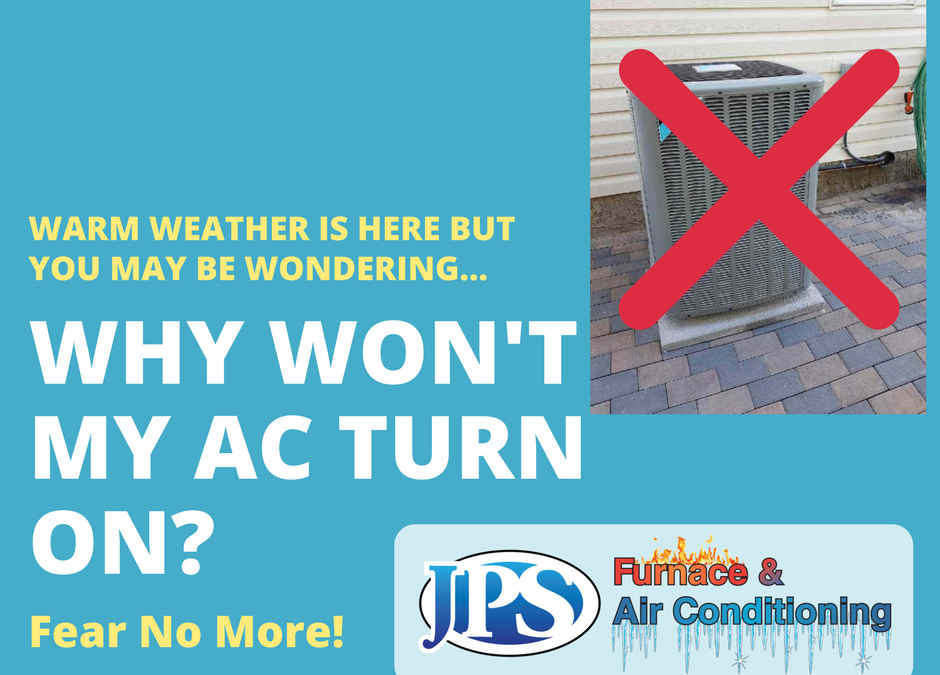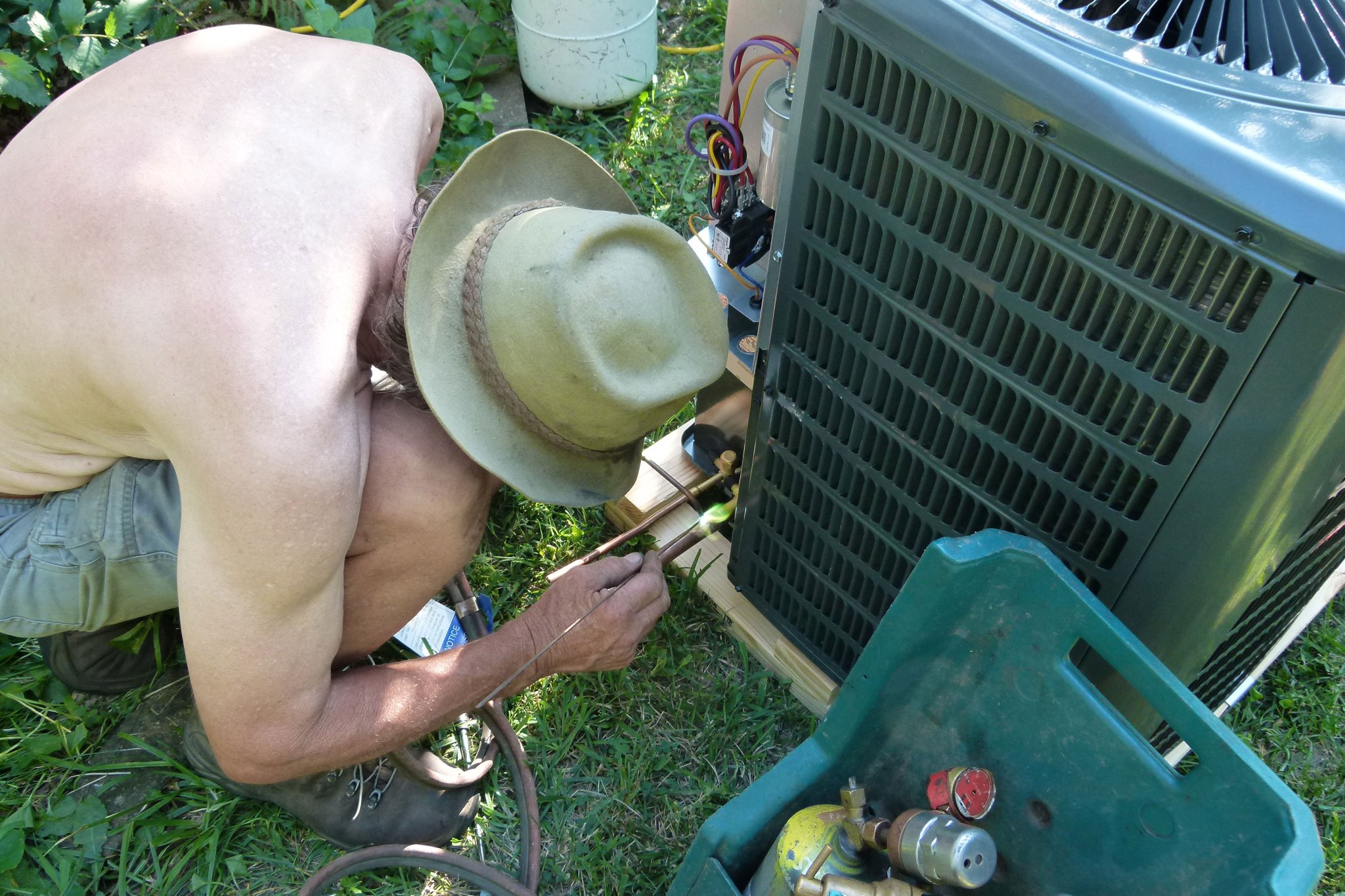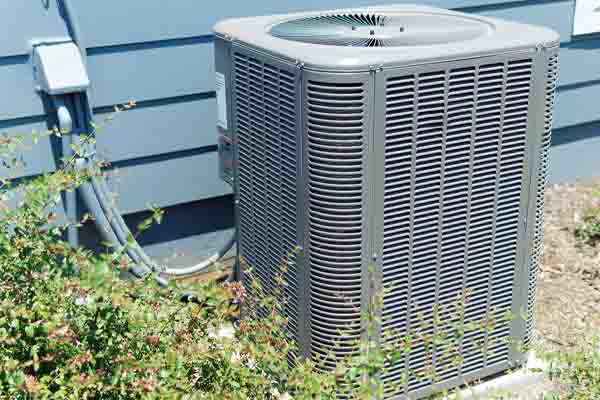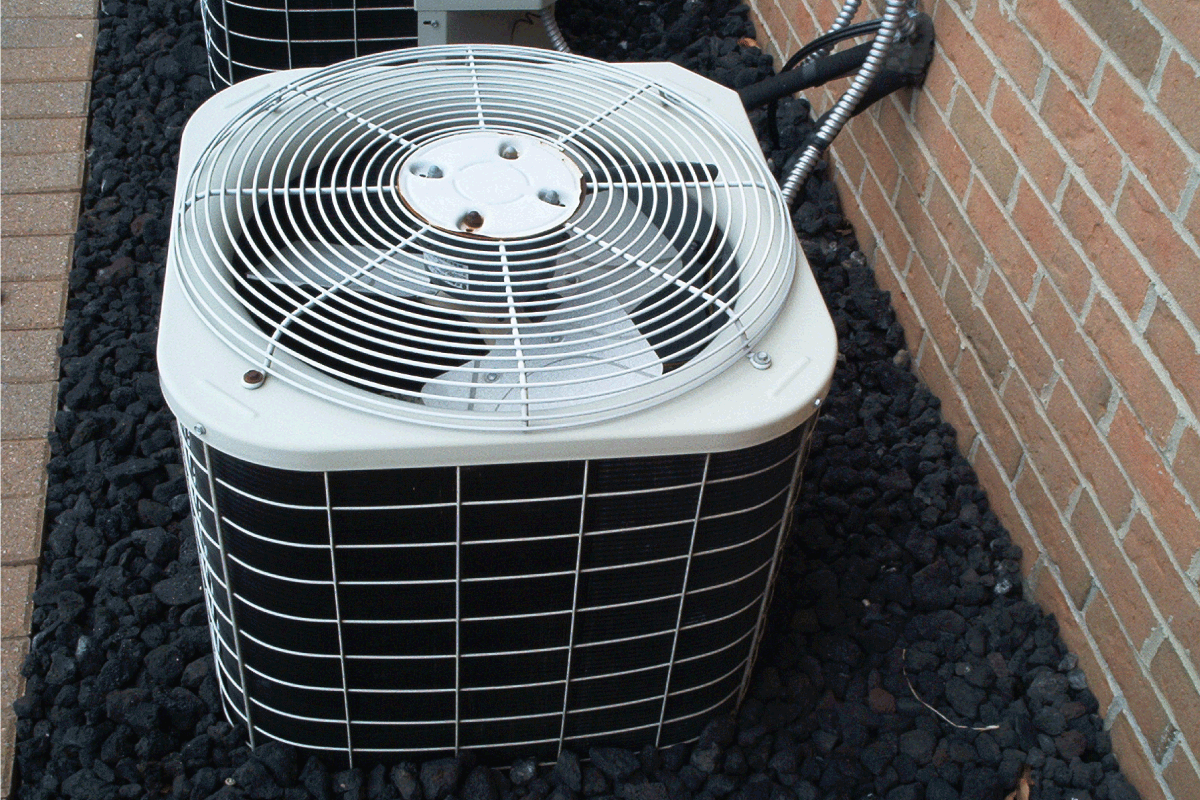My Outside Air Conditioner Won't Turn On

The summer heat is unbearable, and suddenly, your outside air conditioner unit refuses to turn on. It’s a homeowner’s nightmare, potentially signaling hefty repair bills or even a complete system replacement. Before you panic, let's explore the common reasons behind this issue and what steps you can take to diagnose and potentially resolve it. This guide will cover everything from simple troubleshooting to understanding when it's time to call a professional.
Common Reasons Your Outside AC Unit Won't Start
Several culprits can prevent your outdoor AC unit, also known as the condenser, from kicking on. Let's break down the most frequent causes:
Power Issues
Start with the basics. A lack of power is a common offender, and often the easiest to fix.
- Tripped Circuit Breaker: Locate your electrical panel and check the breaker controlling your AC unit. It may be labeled "AC," "Condenser," or something similar. If it's tripped, flip it fully to the "Off" position and then back to "On." If it trips again immediately, there's likely a more serious electrical problem.
- Disconnected Disconnect Switch: Near your outdoor unit, you'll find a disconnect switch (often a metal box). Ensure this switch is in the "On" position. Sometimes, these switches are accidentally turned off during yard work or maintenance.
- Blown Fuse: Some systems use fuses instead of breakers. Check the fuses associated with the AC unit and replace any that are blown.
Thermostat Problems
The thermostat is the brain of your HVAC system. A malfunction here can prevent the outdoor unit from receiving the signal to start.
- Incorrect Settings: Make sure your thermostat is set to "Cool" and the temperature is set lower than the current room temperature.
- Dead Batteries: A simple yet often overlooked cause. Replace the batteries in your thermostat.
- Wiring Issues: Loose or damaged wiring can disrupt communication between the thermostat and the AC unit. This is best left to a qualified technician.
Condenser Problems
The outdoor unit itself can experience a variety of issues that prevent it from starting.
- Dirty Condenser Coils: Over time, the condenser coils can become covered in dirt, debris, and leaves. This restricts airflow and prevents the unit from cooling properly, sometimes causing it to shut down. Regularly cleaning the coils can improve efficiency and prevent problems.
- Frozen Evaporator Coils: Located inside the indoor unit, frozen evaporator coils can restrict airflow and trigger a safety mechanism that shuts down the entire system, including the outdoor unit. Common causes include low refrigerant levels, a dirty air filter, or a malfunctioning blower fan.
- Faulty Capacitor: The capacitor provides the electrical surge needed to start the compressor motor. A failing capacitor is a common issue, and often manifests as a humming sound without the fan starting.
- Compressor Failure: The compressor is the heart of the AC system. If it fails, the entire unit will be unable to cool. Compressor failure is often a serious and expensive problem.
- Refrigerant Leaks: Low refrigerant levels can prevent the system from cooling effectively and eventually cause the compressor to overheat and shut down. Refrigerant leaks require professional repair.
Other Potential Issues
- Clogged Air Filter: A dirty air filter restricts airflow to the indoor unit, potentially causing the evaporator coils to freeze and shut down the entire system.
- Blocked Condensate Drain: The condensate drain removes moisture from the air. A clogged drain can cause water to back up and trigger a safety switch that shuts down the system.
Troubleshooting Steps: A DIY Approach
Before calling a professional, here are some troubleshooting steps you can take:
- Check the Thermostat: Ensure it's set correctly and the batteries are fresh.
- Inspect the Circuit Breaker: Reset any tripped breakers.
- Examine the Disconnect Switch: Make sure it's in the "On" position.
- Clean the Condenser Coils: Use a garden hose (with a gentle spray) to remove dirt and debris. Avoid using a pressure washer, as it can damage the coils.
- Replace the Air Filter: A clean air filter improves airflow and system efficiency.
When to Call a Professional
While some issues can be resolved with DIY troubleshooting, certain problems require the expertise of a qualified HVAC technician.
- Electrical Problems: If the circuit breaker continues to trip, or you suspect any other electrical issues, call a professional. Working with electricity can be dangerous.
- Refrigerant Leaks: Only licensed technicians can handle refrigerant.
- Compressor Problems: Diagnosing and repairing compressor issues requires specialized knowledge and equipment.
- Frozen Evaporator Coils: While you can try thawing the coils by turning off the system and running the fan, if the problem persists, a technician can identify the underlying cause.
- Capacitor Replacement: While capacitors are relatively inexpensive, handling them can be dangerous due to stored electrical charge. If you're not comfortable working with electrical components, it's best to call a professional.
Choosing a New AC Unit: Key Considerations
If your outdoor unit is beyond repair or nearing the end of its lifespan (typically 10-15 years), it might be time to consider a replacement. Here's what to look for:
SEER Rating
SEER (Seasonal Energy Efficiency Ratio) measures the cooling efficiency of an AC unit. The higher the SEER rating, the more efficient the unit, and the lower your energy bills. Current federal standards require a minimum SEER rating of 14 for most regions. Look for units with SEER ratings of 16 or higher for significant energy savings. High SEER ratings often come with a higher upfront cost, but the long-term savings can be substantial.
AFUE Rating
Although this refers to furnaces, if you are replacing a central system, consider both the AC unit and furnace for optimal efficiency. AFUE (Annual Fuel Utilization Efficiency) measures the heating efficiency of a furnace. The higher the AFUE rating, the more efficient the furnace. Look for furnaces with AFUE ratings of 90% or higher for maximum efficiency.
HSPF Rating
HSPF (Heating Seasonal Performance Factor) measures the heating efficiency of a heat pump. If you are considering a heat pump system, this is an important rating to consider. The higher the HSPF, the more efficient the unit.
Size
Choosing the right size AC unit is crucial for optimal performance. An undersized unit will struggle to cool your home effectively, while an oversized unit can cycle on and off frequently, leading to energy waste and poor humidity control. A professional HVAC contractor can perform a load calculation to determine the appropriate size for your home.
Features
- Smart Thermostats: Offer remote control, scheduling, and energy monitoring features.
- Variable-Speed Compressors: Provide more consistent cooling and better energy efficiency compared to single-speed compressors.
- Zoning Systems: Allow you to control the temperature in different areas of your home independently.
Popular Brands and Models
Several reputable brands offer high-quality AC units. Here are a few to consider:
- Carrier: Known for their innovative technology and high-efficiency models. Their Infinity series offers top-of-the-line performance.
- Trane: A trusted brand with a reputation for reliability and durability. Their XV series offers variable-speed technology and high SEER ratings.
- Lennox: Offers a wide range of AC units to suit different budgets and needs. Their Dave Lennox Signature Collection features some of the most efficient models on the market.
- Goodman: A budget-friendly option that offers good value for the price.
Pricing
The cost of a new AC unit can vary depending on the brand, model, size, and features. Expect to pay anywhere from $3,000 to $7,000 for a complete installation. Factor in the cost of labor, materials, and any necessary ductwork modifications.
Warranties and Maintenance
A good warranty provides peace of mind and protects you from unexpected repair costs. Look for units with at least a 10-year warranty on the compressor and parts. Regular maintenance, such as cleaning the coils and changing the air filter, is essential for extending the life of your AC unit and maintaining its efficiency.
Conclusion
A malfunctioning outside AC unit can be a major inconvenience, but by understanding the common causes and taking a systematic approach to troubleshooting, you can often identify and resolve the problem yourself. When in doubt, don't hesitate to call a qualified HVAC technician. And when it's time for a replacement, carefully consider your needs and budget to choose a new AC unit that will keep your home cool and comfortable for years to come.










